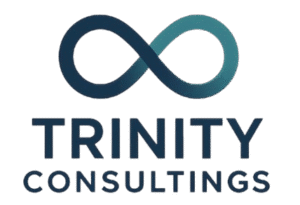SEO for Business Growth by Trinity Consulting is designed to help businesses harness the power of search engine optimization to expand their online presence and attract more customers. By implementing strategic keyword research, technical SEO, and high-quality content, companies can improve their search rankings and drive organic traffic. A well-optimized website not only enhances visibility but also builds credibility and trust with potential clients. With expert guidance from Trinity Consulting, businesses can create sustainable growth strategies that maximize their digital marketing efforts and stay ahead of the competition.
What is SEO?
Search Engine Optimization, is the process of optimizing a website to improve its ranking on search engine results pages (SERPs). The higher a website ranks, the more organic traffic it receives, leading to increased visibility and potential customers. SEO involves various techniques, including keyword optimization, content creation, technical enhancements, and link-building.
Why is SEO Important?
- Increases Website Traffic: Higher search rankings lead to more organic visitors.
- Boosts Brand Credibility: Websites that rank on the first page of search results are seen as more trustworthy.
- Enhances User Experience: Optimized websites provide faster loading times, mobile responsiveness, and valuable content.
- Improves Conversion Rates: Targeting the right keywords attracts users who are ready to engage and convert.
- Cost-Effective Marketing: It generates long-term results without ongoing high ad costs.
Key SEO Strategies for Business Success
1. Keyword Research and Optimization
Identifying the right keywords is essential for a successful SEO strategy. Businesses should focus on high-traffic, low-competition keywords that align with their target audience’s search intent.
- Use SEO tools like Google Keyword Planner, SEMrush, and Ahrefs to find valuable keywords.
- Incorporate keywords naturally into website content, meta descriptions, headers, and URLs.
- Optimize for long-tail keywords to attract highly targeted traffic.
2. High-Quality Content Creation
Content is the backbone of SEO. Creating valuable and informative content helps engage users and improve rankings.
- Write blog posts, guides, and case studies to provide useful information to your audience.
- Use multimedia content such as videos, infographics, and podcasts to increase engagement.
- Update old content regularly to keep information relevant and improve rankings.
3. On-Page SEO Optimization
It involves optimizing individual web pages to improve rankings and user experience.
- Optimize title tags and meta descriptions with relevant keywords.
- Use header tags (H1, H2, H3) to structure content and improve readability.
- Improve URL structure by keeping it short, relevant, and keyword-rich.
- Enhance internal linking to help search engines understand website structure and distribute page authority.
4. Technical SEO Enhancements
Technical SEO focuses on improving a website’s backend structure for better performance.
- Ensure mobile-friendliness to cater to a growing mobile audience.
- Improve website speed by optimizing images, enabling caching, and minimizing code.
- Use structured data (Schema Markup) to enhance search results with rich snippets.
- Fix broken links and redirects to maintain a seamless user experience.
5. Off-Page SEO and Link Building
Off-page strategies help build authority and credibility for your website.
- Acquire high-quality backlinks from authoritative websites.
- Guest post on industry blogs to showcase expertise and gain referral traffic.
- Leverage social media marketing to increase brand visibility and engagement.
- Encourage customer reviews and testimonials to boost credibility.
6. Local SEO for Targeted Traffic
For businesses with a physical location or regional audience, local SEO is essential.
- Optimize Google My Business (GMB) profile with accurate information, images, and reviews.
- Use local keywords in website content, meta tags, and business listings.
- Encourage positive customer reviews to improve local search rankings.
- List your business in local directories like Yelp, Yellow Pages, and industry-specific platforms.
7. Measuring and Analyzing SEO Performance
Regularly tracking SEO performance helps businesses refine their strategies.
- Use Google Analytics and Google Search Console to monitor website traffic and rankings.
- Analyze user behavior to identify areas for improvement.
- Track keyword performance to adjust content strategy accordingly.
- Monitor competitor SEO strategies to stay ahead in the market.
Conclusion
SEO is a powerful tool that helps businesses improve online visibility, attract organic traffic, and drive long-term success. By implementing strategic keyword research, high-quality content creation, technical optimizations, and link-building efforts, businesses can achieve sustainable growth. At Trinity Consulting, we provide expert SEO solutions tailored to your needs. Contact us today to elevate your digital presence and achieve your business goals.
